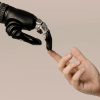The deep learning that modifies your social media and gives you Google search results is coming to your thermostat.
Researchers at the Massachusetts Institute of Technology (MIT) have developed a deep learning system of neural networks that can be used in the “Internet of Things” (IoT). Named MCUNet, the system designs small neural networks that allow for previously unseen speed and accuracy for deep learning on IoT devices. Benefits of the system include energy savings and improved data security for devices.
Created in the early 1980s, the IoT is essentially a large group of everyday household objects that have become increasingly connected through the internet. They include smart fridges, wearable heart monitors, thermostats, and other “smart” devices. These gadgets run on microcontrollers, or computer chips with no processing system, that have very little processing power and memory. This has traditionally made it hard for deep learning to occur on IoT devices.
“How do we deploy neural nets directly on these tiny devices? It’s a new research area that’s getting very hot,” said Song Han, Assistant Professor of Computer Science at MIT who is a part of the project, “Companies like Google and ARM are all working in this direction.”
In order to achieve deep learning for IoT connected machines, Han’s group designed two specific components. The first is TinyEngine, an inference engine that directs resource management similar to an operating system would. The other is Tiny NAS, a neural architecture search algorithm. For those not well-versed in such technical terms, think of these things like a mini Windows 10 and machine learning for that smart fridge you own.
The results of these new components are promising. According to Han, MCUNet could become the new industry standard, stating that “It has huge potential.” He envisions the system has one that could help smartwatches not just monitor heartbeat and blood pressure but help analyze and explain to users what that means. It could also lead to making IoT devices far more secure than they are currently.
“A key advantage is preserving privacy,” says Han. “You don’t need to transmit the data to the cloud.”
It will still be a while until we see smart devices with deep learning capabilities, but it is all but inevitable at this point—the future we’ve all heard about is definitely on the horizon.
Patrick Auger is a management consultant and entrepreneur who resides in Austin, Texas. He has a Bachelor of Arts in Business Management from Western Illinois University, and is the Founder and Principal Consultant at Auger Consulting Group, LLC. When he's not writing for The American Genius, he's writing about the business of Mixed Martial Arts for The Body Lock or learning how to cook, one burnt recipe at a time.











































Pingback: 4 ways startups prove their investment in upcoming technology trends
Pingback: 4 easy ways to keep track of inventory this holiday season